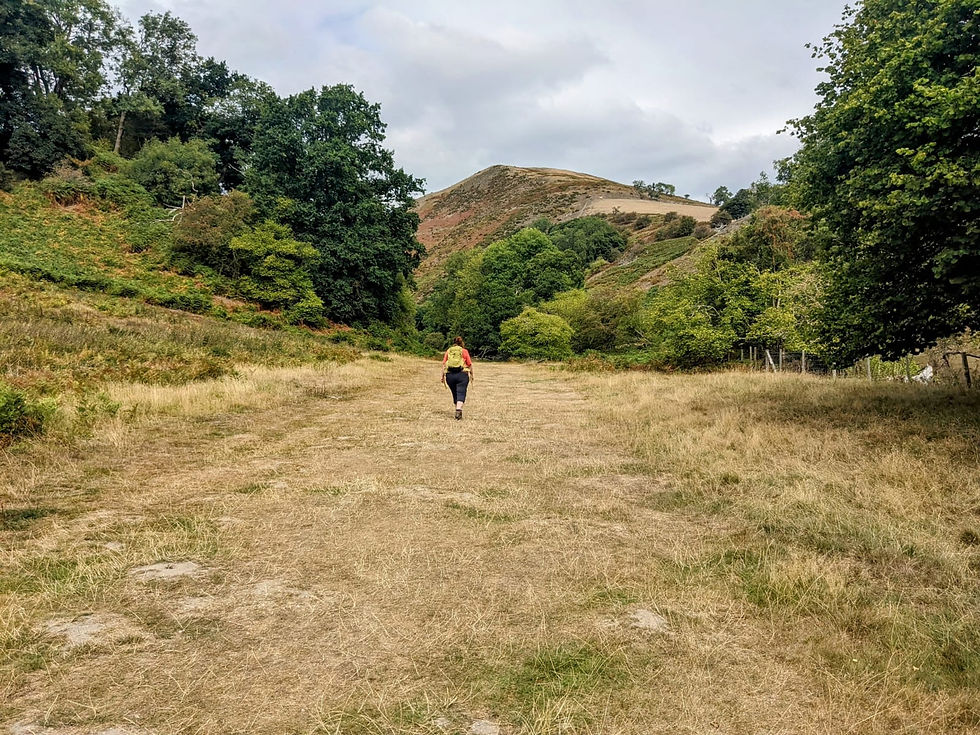Men experience Imposter Syndrome too: Breaking free, inspired by Nature
- JK - Where The Mind Grows

- Mar 18, 2025
- 4 min read

You might not know that around 50-75% of my individual coaching clients throughout each year are men.
I've noticed a pattern: many men (often 'successful' in leadership roles or career focus) silently grapple with this feeling and notion of 'imposter syndrome'
They feel like they don't truly deserve their achievements or feel anxiety about getting caught out and making mistakes.
While often associated with women in the workplace ,the whole concept of 'Imposter Syndrome' is often discussed in a personal development space such as coaching.
And as a man, uniquely, sometimes this is intensified by societal expectations of unwavering confidence and capability and the feeling you can't really talk about this inner scrutiny as openly as women would with friends and family.
The Hidden Struggle
The men I work alongside as clients frequently admit that they internalise the pressure to "have it all figured out," making it particularly challenging to acknowledge and address feelings of inadequacy. These feelings can manifest as overworking, perfectionism, stress or anxiety or reluctance to celebrate successes. They may leak out in the way you communicate with others or the things you seek to avoid or delay – all while maintaining a facade of self-assurance or 'everything is fine'
Nature as Our Teacher
I've found that taking coaching sessions into natural settings offers powerful perspectives for reframing imposter syndrome. Nature provides profound metaphors that help men recognise and appreciate their authentic value:

The Oak's Lesson in Authenticity
Down at the bottom of the woods, there is a really cool and pretty unique oak tree and our sessions often end up there, strolling around it and reflecting.
Consider the oak tree: no two are identical, yet each contributes uniquely to the forest ecosystem. Some grow tall and straight, others twisted and gnarled like the wonderful on in our woods, you can see here– Both are equally vital. Your unique path and approach to leadership or problem-solving isn't a flaw; it's your signature strength.
The Wolf Pack's Message
Wolf packs thrive through diverse roles and capabilities. The strongest wolves aren't always the leaders; sometimes, it's the most experienced or strategic thinkers who guide the pack. Your value isn't determined by fitting a predetermined mould but by the unique perspective and skills you bring to your team, your role, your relationship or society.
Practical Steps for Reframing Imposter Thoughts
Re-framing is just one way you can start expanding and shifting perspectives.
Its not that whole toxic positivity that most men just can't buy into, instead finding new angles to look at a situation that you might not have considered before or focused on as a belief.
1. Document Your Journey
Start keeping a notebook or journal recording challenges and achievements you've overcome and skills you've developed. Like a tree's growth rings, each experience has shaped who you are today.
2. Embrace Your Unique Pattern
Just as every snowflake forms its distinct pattern (check it out!) under similar conditions, recognise that your way of handling challenges and opportunities is uniquely valuable. What can you do, not just what you can't do. How you ARE helping.
3. Build Your Ecosystem
Create a support network of trusted colleagues, connections or mentors. Like a healthy forest, professional growth thrives through interconnection and mutual support. Imposter Syndrome beliefs and feelings often come from environments and work cultures that compromise values or trust.
4. Practice Self-Compassion in Nature
Spend time outdoors regularly. Notice how nature embraces imperfection – the asymmetrical branch, the weather-worn rock. Let this remind you that authentic growth isn't about perfection. In fact striving for perfection is very tiresome and striving for it is rarely the most efficient or impact way.
Real-World Adaptation
In the past I have had male clients struggle with feeling "not *insert your belief or skill here* enough" for example 'not technical enough' even though you may still be achieving success or positive outcomes. Maybe like them, you've been really focused on striving for more and better.
Through our nature-based coaching sessions, clients have been able to consider other views, beliefs and offerings for example, a "non-traditional" approach to technical leadership – focusing on team dynamics and creative problem-solving – was actually one client's greatest strength.
Moving Forward
Remember that in nature, diversity is strength. Your distinctive experiences, perspectives, and approaches aren't weaknesses to overcome but assets to embrace.
Coaching understands that the stories you tell yourself can help or hinder you in life and work.
We'll help you understand the reasons that these beliefs show up for you, with most of our focus being on helping you change them and feel confident in what to do, when they show up.
The next time imposter syndrome surfaces, take a walk in nature and remind yourself: you're not an imposter; you're an essential part of your professional or relational ecosystem, contributing in ways that only you can.
The path to authentic self-leadership and acceptance isn't about eliminating self-doubt - that shows up when there is something to learn or adapt– it's about recognising that your unique journey, like every natural process, has intrinsic value and purpose.
Your perceived "imperfections" might just be your greatest strengths in disguise.
And our coaching will always help you find the most nurturing environments to really be yourself. If that's truly what you need in the long term.

To find your own way back to Nature and explore ways to weave a life of wild connection.
Book a FREE discovery call or check out coaching packages here or the retreats page here
Looking for more Nature-Inspired ways of living for health and happiness?
Subscribe today for a weekly Newsletter & offerings from Where the Mind Grows. Follow this link to subscribe.



Comments